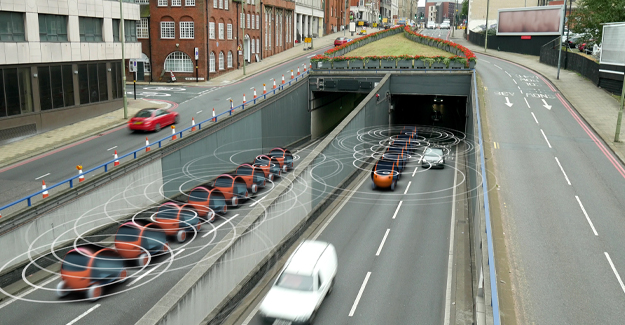Zero tolerance for accidents means roads must be perfect
The arrival of self-driving and connected cars will add weight to the case for improved highway maintenance, not only to tackle the huge backlog, but also to ensure the associated communication and information systems are up to standard and offer comprehensive coverage.
Experience from the aviation and rail sectors suggests that there could also be a need for a more highly-qualified and highly-paid workforce, not just to ensure highway surfaces are maintained in better condition, but also look after the network of telecoms equipment that connected cars will rely on.
In a report for the RAC Foundation – Readiness of the road network for connected and autonomous vehicles – the consultancy CAS says that much will depend on the ability of autonomous vehicles to ‘read the road’ and make allowances for potholes, poor road markings and complicated signals and signs.
The report gives the example of the danger faced if any of the vehicles travelling in a fast-moving, close-formation platoon hits a pothole.
The report – authored by Dr Charles Johnson – says that human drivers have four areas of competence which autonomous vehicles will be required to replicate:
- Observation
- Analysis
- Decision-making
- Taking effective action
The report says that “all four levels of ‘cognitive performance’ required by AVs will have implications for infrastructure since the last three will all be dependent on the accuracy of the first”.
Steve Gooding, director of the RAC Foundation, said:
“Driverless cars will make decisions based on their best assessment of their surroundings. Throw in variables like potholes, unclear and obscured signs and lines, and intermittent communication coverage from our currently patchy network and you could find that far from offering the swift, comfortable travel we seek, our new autonomous cars are condemned to crawling along in ‘proceed with caution’ mode.
“While motorists might accept a degree of human error and its consequences when they themselves are at the wheel, the experience from public transport is that when people are being driven rather driving they have almost zero tolerance for safety failings. The record on our roads is a long way from that today, but just focusing on the safety of the vehicle – its design and its software – isn’t going to bridge the gap. Getting the road infrastructure right is integral to ensuring an all-round safe system.”
ENDS
Contacts:
Philip Gomm – Head of External Communications – RAC Foundation
020 7747 3445 | 07711 776448 | [email protected] | 020 7389 0601 (ISDN)
Notes to editors:
The RAC Foundation is a transport policy and research organisation that explores the economic, mobility, safety and environmental issues relating to roads and their users. The Foundation publishes independent and authoritative research with which it promotes informed debate and advocates policy in the interest of the responsible motorist.
The RAC Foundation is a registered charity, number 1002705.
All the Foundation’s work is available on the website:
This is a link to the full report:



